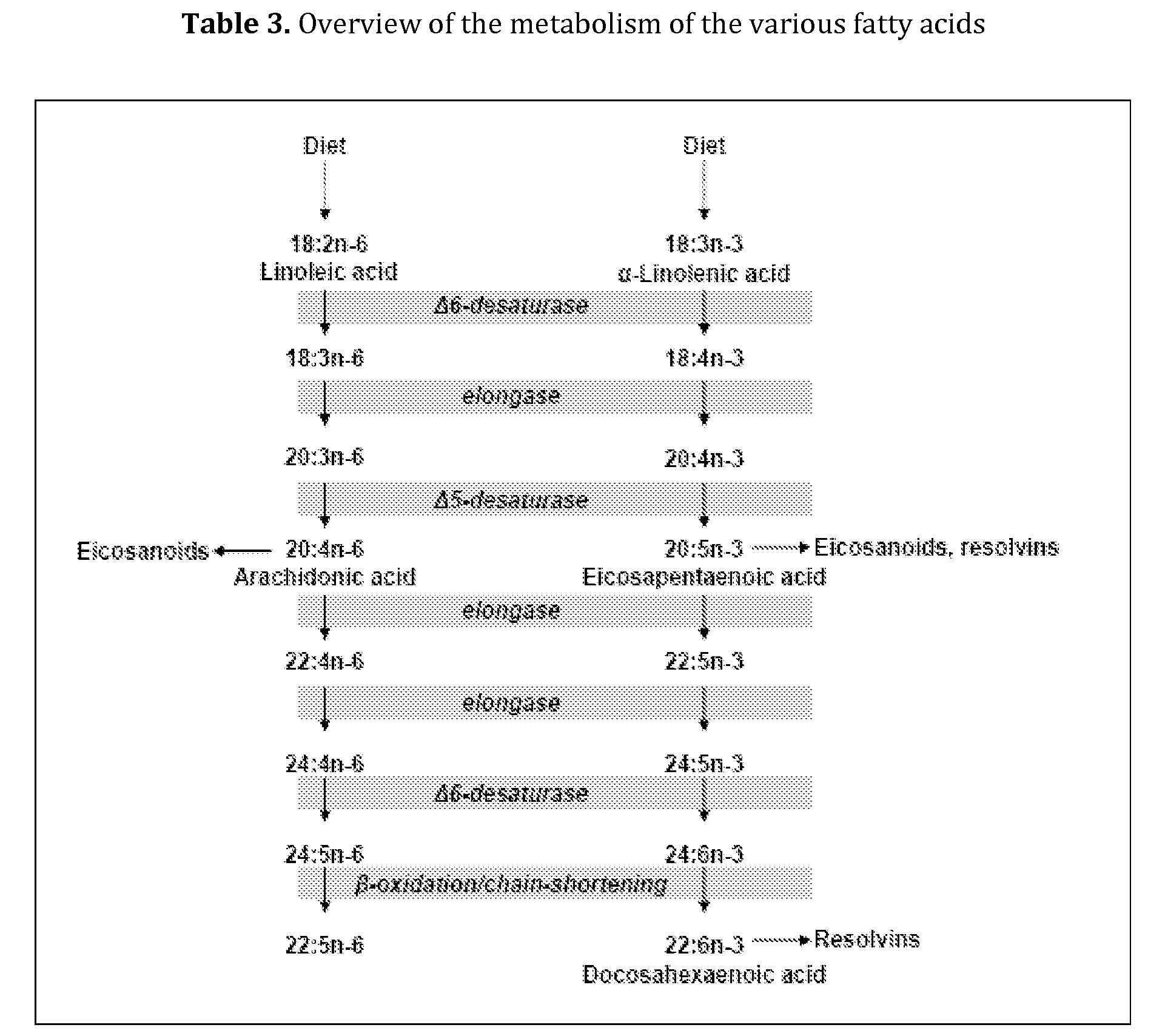Liquid enteral nutritional composition suitable for tube feeding, minimizing lower and upper tract digestive conditions
a technology of liquid enteral and nutritional composition, which is applied in the field of liquid enteral nutritional composition, can solve the problems of human clinical complications, no data is available on clinical complications, and no evaluation of the nutritional qualities of the claimed food product, so as to achieve the effect of reducing clinical complications
- Summary
- Abstract
- Description
- Claims
- Application Information
AI Technical Summary
Benefits of technology
Problems solved by technology
Method used
Image
Examples
example 1
[0199]Methods: In a two-country, multi-centre, randomised, controlled, double-blind, cross-over designed study, 28 nursing home residents on long term tube feeding received in different order a tube feed comprising the nutritional composition according to the invention (NN) and a control product (Nutrison MF, Nutricia, The Netherlands (N), see Table 7) for 4 weeks (2 weeks each product). Safe use by recording (serious) adverse events ((S)AE), medication use, incidence of diarrhoea and constipation based on stool frequency and consistency (using Bristol Stool Form Scale), and subjective gastro intestinal complaints. Statistical analyses were performed for both the ITT and PP population comparing NN with N. Statistical tests are conducted two-sided with a significance level of 5%. All confidence intervals are presented two-sided with a confidence coefficient of 95%.
[0200]
TABLE 7Composition of tested product and control product per 100 mlTestedControlProductProductEnergykcal100100Prote...
example 2
[0202]Table 8 shows a number of compositions according to the invention, suitable as adult tube feed, paediatric tube feed or adult oral nutritional supplement.
[0203]
TABLE 8Enteral compositions according to the inventionEx. 3Ex. 1Ex. 2Adult OralAdultPaediatricnutritionalComponenttube feedtube feedsupplementEnergy value (kcal / 100 ml)100150240Protein (En %)161616Fat (En %)353535Carbohydrates (En %)494949Protein (g / 100 ml)469.6Pea protein0.81.21.9Whey protein1.42.13.4Casein1.01.52.4Soy protein0.81.21.9Carbohydrates (g / 100 ml)12.318.329.7Fat (g / 100 ml)3.9*5.8*9.3*Saturated fat1.01.52.4MCFA0.60.91.4Unsaturated fat2.94.36.9MUFA2.23.25.2PUFA0.71.11.7LA0.50.81.3ALA0.10.20.3EPA + DHA0.030.030.03ALA + EPA + DHA0.160.230.35ω-6 / ω-32.9:13.1:13.1:1Viscosity (mPa · s)183570-85Density (kg / l)1.11.11.1*in these examples 3.9 g fat equals 3.7 g fatty acids; 5.8 g fat equals 5.5 g fatty acids; 9.3 g fat equals 8.7 g fatty acids.
PUM
| Property | Measurement | Unit |
|---|---|---|
| weight % | aaaaa | aaaaa |
| weight % | aaaaa | aaaaa |
| weight % | aaaaa | aaaaa |
Abstract
Description
Claims
Application Information
 Login to View More
Login to View More - R&D
- Intellectual Property
- Life Sciences
- Materials
- Tech Scout
- Unparalleled Data Quality
- Higher Quality Content
- 60% Fewer Hallucinations
Browse by: Latest US Patents, China's latest patents, Technical Efficacy Thesaurus, Application Domain, Technology Topic, Popular Technical Reports.
© 2025 PatSnap. All rights reserved.Legal|Privacy policy|Modern Slavery Act Transparency Statement|Sitemap|About US| Contact US: help@patsnap.com

